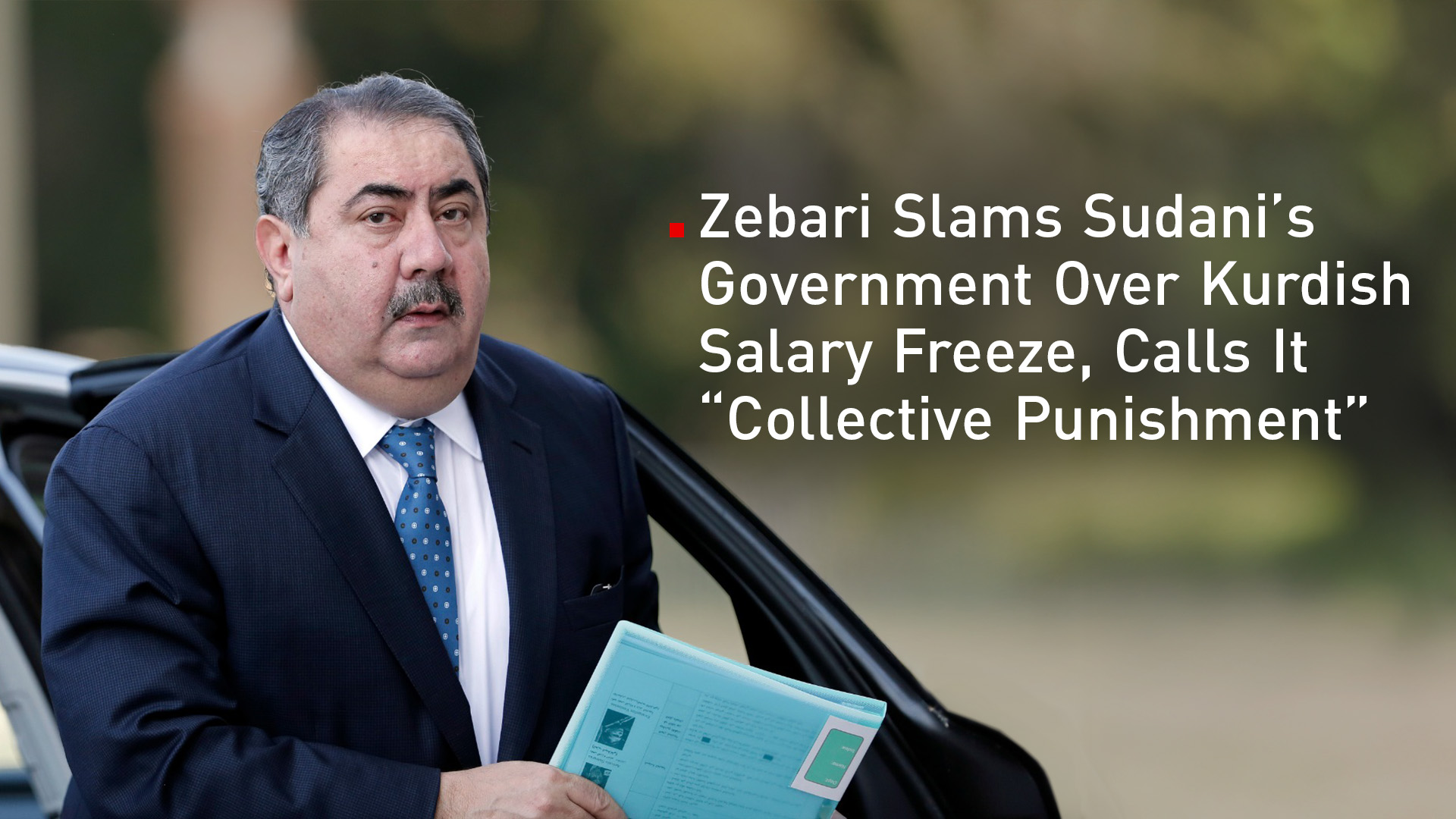Zebari Slams Sudani’s Government Over Kurdish Salary Freeze, Calls It “Collective Punishment”
Zebari cautioned that the decision would not pass quietly, adding, “We are not living in a utopia, and our political history shows that aggressors will be punished.”

ERBIL (Kurdistan24) — Senior Kurdistan Democratic Party (KDP) official and former Iraqi Foreign Minister Hoshyar Zebari on Wednesday fiercely condemned the Iraqi federal government’s decision to halt the funding of public sector salaries in the Kurdistan Region, warning it will not go “without consequences.”
In a strongly worded post on X (formerly Twitter), Zebari denounced the move as a deliberate act of “collective punishment” aimed at the people of the Kurdistan Region. “The decision by Prime Minister al-Sudani’s government—backed by the Coordination Framework—to stop financing the salaries of Kurdistan Region employees comes at a very unfortunate time,” Zebari wrote. “It is a form of collective punishment and an attempt to starve the people of the region under flimsy financial and administrative pretexts.”
Zebari cautioned that the decision would not pass quietly, adding, “We are not living in a utopia, and our political history shows that aggressors will be punished.”
قرار حكومة السيد السوداني الاطار التنسيقي بايقاف تمويل رواتب موظفي اقليم كردستان و في توقيت سئ جدا لمعاقبة جماعية و تجويع لمواطني الاقليم من خلال التشبث بحجج مالية وإدارية سوف لن يمر مرور الكرام و بدون عواقب فنحن لا نعيش في مدينة فاضلة و تاريخنا السياسي يؤشر بان المعتدي سيعاقب.
— Hoshyar Zebari (@HoshyarZebari) June 3, 2025
Escalating Crisis: Baghdad’s Salary Freeze Deepens Rift with Erbil
The latest escalation in tensions between Erbil and Baghdad stems from the federal government’s continued refusal to release budget allocations and salaries owed to the Kurdistan Region. Disguised under flimsy legal and administrative pretexts, Baghdad’s actions are widely viewed in the Kurdistan Region as deliberate, politically driven maneuvers aimed at undermining Kurdish autonomy and punishing its population.
Despite being enshrined in Iraq’s federal budget law, the central government’s financial obligations to the Kurdistan Regional Government (KRG) have repeatedly been ignored or manipulated—an act Kurdish leaders describe as a blatant violation of constitutional agreements and a systematic effort to weaken the region economically and politically.
Zebari’s statement captures the mounting outrage in the Kurdistan Region, where the suspension of public sector salaries is seen not just as fiscal mismanagement, but as a hostile and destabilizing campaign against an entire population. With public salaries forming the backbone of the Kurdistan Region’s economy, Baghdad’s actions have inflicted real harm on ordinary citizens, triggering public anger and calls for accountability.
Observers warn that this latest act of economic aggression by the federal government could have profound political consequences, potentially redrawing the contours of Iraq’s fragile federal framework and intensifying Kurdish demands for greater self-determination.